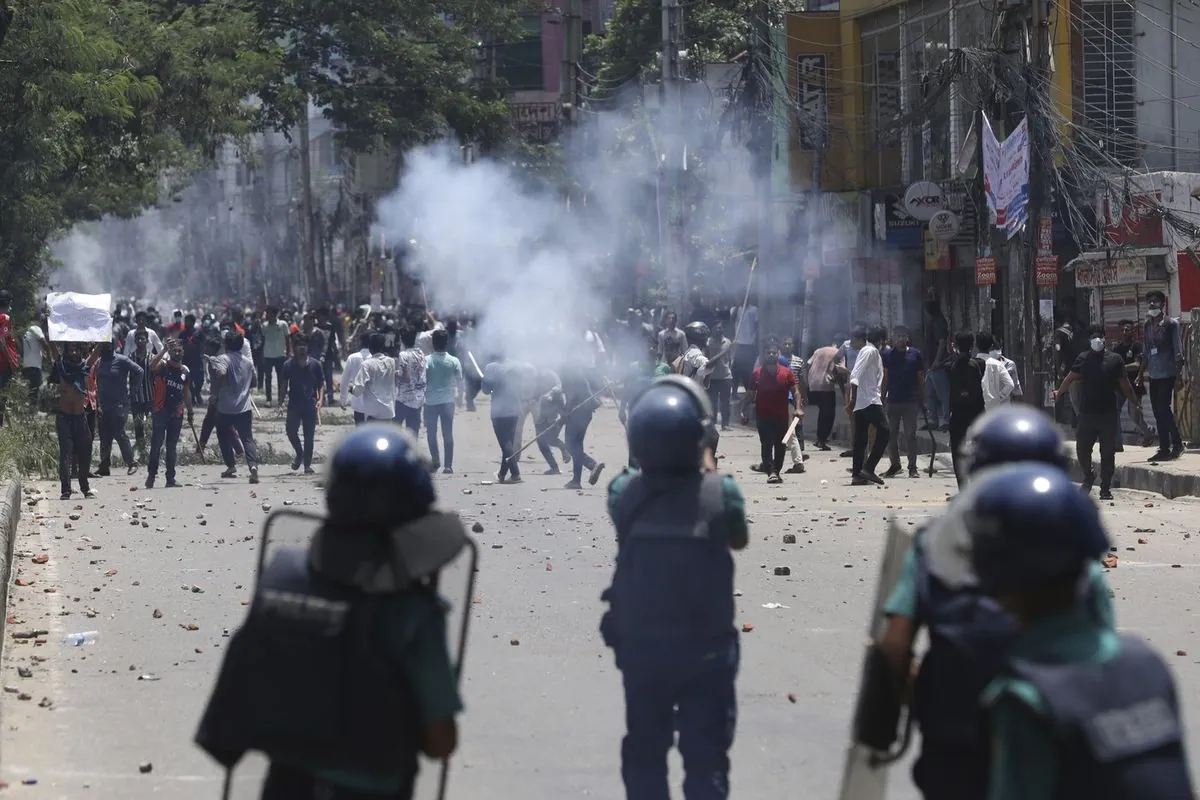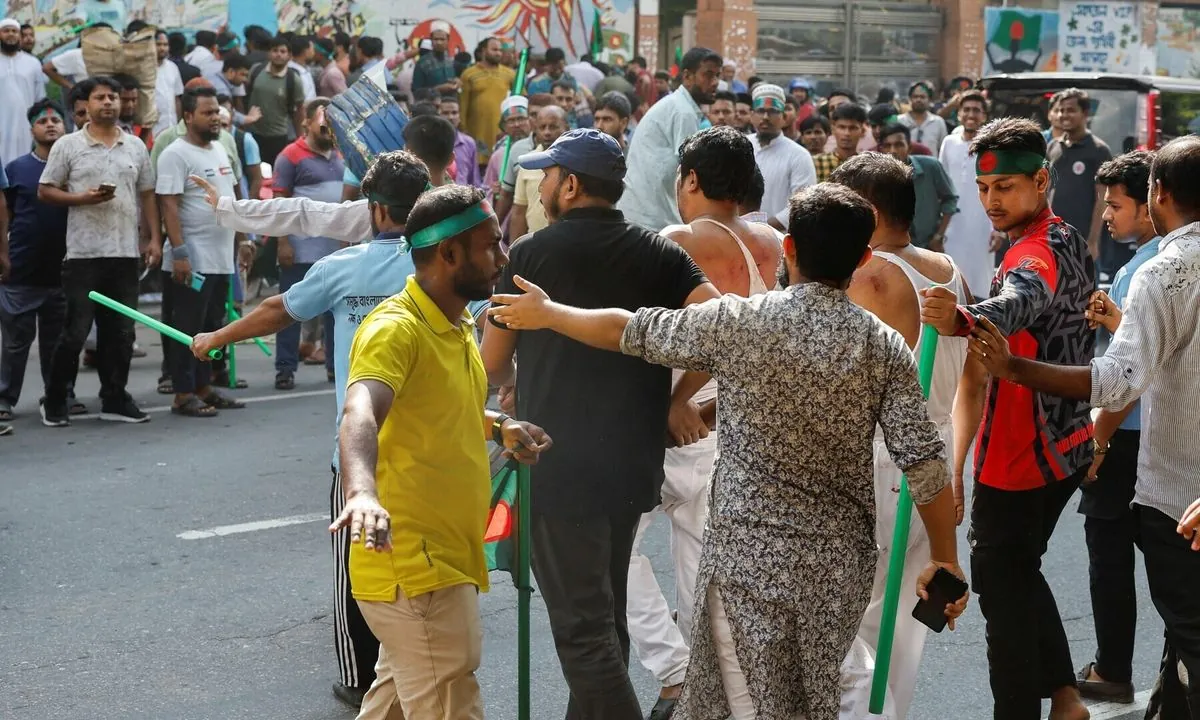Clashes Erupt in Dhaka as Protesters Block Memorial Access
Tensions escalate in Bangladesh's capital as protesters prevent supporters of ousted PM Sheikh Hasina from accessing a memorial museum. The incident occurs on the anniversary of Sheikh Mujibur Rahman's assassination.

In a tense display of political unrest, Bangladesh's capital Dhaka witnessed significant clashes on August 15, 2024. Protesters, armed with makeshift weapons, obstructed supporters of recently ousted Prime Minister Sheikh Hasina from reaching the Bangabandhu Memorial Museum, dedicated to her father and the country's founding leader, Sheikh Mujibur Rahman.
The confrontation occurred on the 49th anniversary of Rahman's assassination, which took place on August 15, 1975. This date, previously observed as a national day of mourning under Hasina's administration, has now become a flashpoint for political tensions following her recent removal from office.

The Bangabandhu Memorial Museum, located in Dhaka's Dhanmondi area, was established to commemorate the life of Sheikh Mujibur Rahman, who is affectionately known as Bangabandhu or "Friend of Bengal." The museum, which houses artifacts related to the 1975 military coup that resulted in Rahman's death, was reportedly damaged during recent anti-government demonstrations.
Sheikh Hasina, who has been in self-imposed exile in India since her ousting on August 5, 2024, had urged her supporters to pay respects to her father at the museum. However, protesters, including student groups and political activists, prevented access to the site, leading to physical altercations and the harassment of visitors and journalists.
"We are here to prevent any potential chaos that Hasina's supporters might create under the guise of commemoration."
The situation in Dhaka reflects the complex political landscape of Bangladesh, a country with a history of political instability and military coups. The recent unrest, which began in July 2024 over government job quotas, escalated into a broader movement against Hasina's perceived autocratic rule, ultimately leading to her departure after 15 years in power.
In the wake of these events, Nobel laureate Muhammad Yunus has assumed leadership of an interim government. Yunus, known for his pioneering work in microcredit, faces the challenging task of steering the nation through this period of transition.
The current unrest occurs against the backdrop of Bangladesh's remarkable economic progress in recent years. Despite being one of the world's most densely populated countries and facing challenges such as climate change vulnerability, Bangladesh has made significant strides in poverty reduction and women's empowerment.
As the situation unfolds, concerns are growing about press freedom and civil liberties. Journalists reporting on the events have faced intimidation and restrictions, raising questions about the state of media independence in the country.
The protesters, some of whom identify with opposition groups like the Bangladesh Nationalist Party (BNP), are demanding accountability for the violence that occurred during the recent upheaval. Legal actions have already been initiated against Hasina and her associates in connection with the deaths of over 300 people during the protests.
As Bangladesh navigates this period of political uncertainty, the international community watches closely. The country's strategic importance, its role in hosting Rohingya refugees, and its position as a major garment exporter all contribute to the global significance of these developments.


































